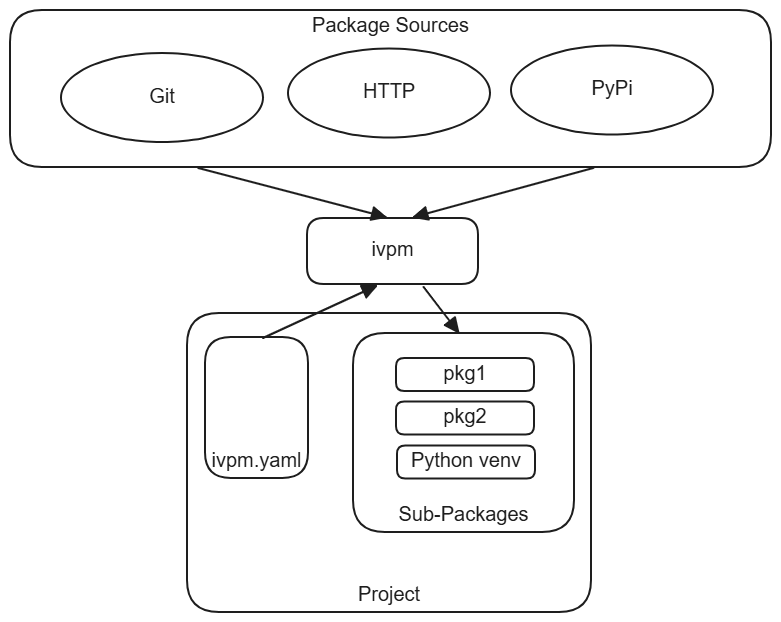Introduction
What is IVPM?
IVPM (short for IP and Verification Package Manager) is a lightweight project-local package manager. It excels at managing projects where dependencies are co-developed with the project.

Let’s look at a simple example. A System-on-Chip (SoC) design targeting an FPGA or an ASIC is composed of multiple IPs written in a hardware-description language (HDL) like Verilog. These IPs must be present in order to simulate the SoC for verification or synthesize the SoC to an FPGA or ASIC implementation. In order to run functional verification on the SoC, Bus Functional Models (BFMs) are used by the testbench to interact with the design. If the project dependencies are open source or developed in-house, it is often necessary to either propose fixes or enhancements to the original developers.
IVPM manages a project-local package repository where project dependencies are stored.
IVPM manages package sub-dependencies. When one package depends on another, IVPM ensures all required packages are fetched.
IPVM allows packages to express their ‘development’ and ‘release’ dependencies separately. This means that adding a design IP to your project will only bring what is needed to use that IP into the package repository, and not all the verification libraries used to verify that IP.
IVPM provides first-class support for Python packages, enabling them to be installed as binary packages or developed inside editable packages.
IVPM provides Git integration, with commands to quickly assess the status of editable projects and update project source from it’s upstream repository.
IVPM enables ‘snapshotting’ project dependencies to create a project that contains all its required dependencies.
IVPM provides build/release utilities for C/C++ packages that provide a Python interface
IVPM provides features for discovering source and library paths across Python and non-Python packages. This support is currently focused on the needs of managing FuseSoC libraries.